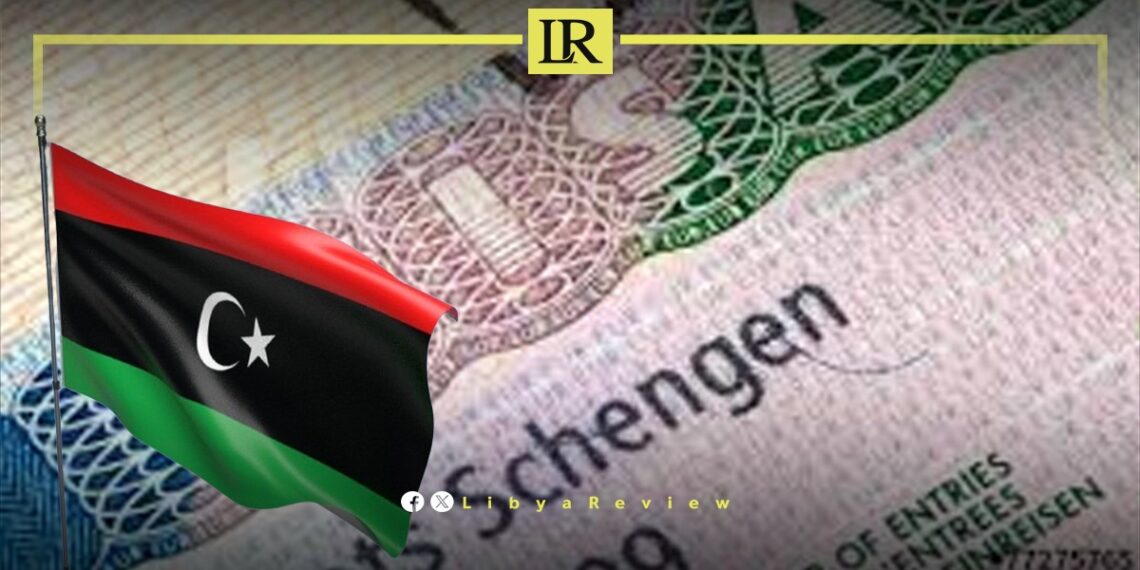In 2023, approximately 25,000 Libyans applied for Schengen visas, placing Libya 51st among the nationalities most frequently seeking entry to the European Union’s Schengen Area out of 133 countries.
This information comes from Visa Info, a website specializing in Schengen statistics, which reported that Libyan nationals submitted 24,428 visa applications to Schengen consulates last year.
The Schengen Area, comprising 27 European countries, allows for unrestricted movement of people within its borders. For Libyans, obtaining a Schengen visa is crucial for various purposes, including tourism, business, education, and healthcare.
Many Libyans seek business opportunities in Europe due to the economic challenges in their home country. The Schengen visa, allowing up to 90 days of stay, facilitates short-term business activities and fosters economic ties between Libya and European nations.
Europe is also a prime destination for Libyan students and patients seeking quality education and advanced medical treatments. The high number of visa applications reflects the demand for educational and healthcare services that may not be available locally.
Europe’s rich cultural heritage and tourist attractions are major draws for Libyan travelers. The Schengen visa’s ability to cover multiple countries enhances the appeal for tourists wanting to explore diverse European destinations.
Currently, Libyan passport holders can travel to several countries without a prior visa, including Algeria, Malaysia, Dominica, and 34 other countries across Africa and Asia. However, no European countries are on this list. Consequently, Libyans wishing to visit Europe must obtain visas to enter any of the Schengen Area countries, such as Italy, France, and Germany.
The need for Schengen visas highlights the broader issue of restricted travel mobility faced by citizens of countries with unstable political and economic environments. The visa application process often involves detailed documentation and significant financial costs.
Efforts to improve bilateral relations between Libya and European countries could potentially ease travel restrictions in the future. Enhanced diplomatic engagements and mutual agreements could lead to more streamlined visa processes, benefiting both Libyan travelers and European economies through increased tourism and business activities.


